Research Material Scraping Made Simple With BrowserAct

Learn how research material scraping helps students, journalists, and researchers find data fast. Use BrowserAct for easy and safe research scraping.
It is hard to locate good research material online. You're a student writing a paper or a reporter looking for sources. Both you and your browser spend hours trawling page after page of sites. What if you could locate research data faster? That's where research material scraping comes in.
Here, you will learn what online research material scraping is, how it works, and how one can utilize a tool like BrowserAct to retrieve the content one wants in a timely and safe manner.
The Use Of Online Research Material Scraping
Scraping research material refers to when a piece of software or tool goes to websites and pulls out specific content on your behalf. Instead of piecing it out bit by bit by copying and pasting, the tool does it all at one go. Here's how people use it in real life:
Newest Essays for Researchers
The majority of researchers need new academic reports, papers, and essays. However, not all websites support this. Web scraping helps in finding, harvesting, and saving essay titles, summaries, or links from research journals and databases.
Material for Journalism
Journalists typically need quotes, statistics, or reports from credible websites. Instead of searching for it manually, they can scrape press releases, news websites, or government websites. It saves time and allows them to finish on time.
Company Business Reports
Companies use scraping to obtain business trends, prices, or market research reports. They can scrape sites of competitors, products, or public forum information to be market leaders in business.
Teachers and Student Learning Resources
Students and teachers may utilize research material scraping to obtain study guides, lesson plans, or quiz content. Learning and teaching are thus made more effective.
The Challenge In Obtaining And Downloading Internet Research Material
It is not always possible to get good research material. These are some of the common challenges one encounters:

- Spaced-Out Information: The research is typically spaced out in many sites. It is hard to determine which page has the most helpful information.
- Time-Consuming: Navigating every site, reading the articles, and pasting useful information is a time-consuming process.
- Download Limitations: Some sites limit the amount you can download unless you are ready to pay.
- Changing Pages: Web pages continue to change. The article or information you read yesterday might not be found today.
Because of these problems, people are turning to online scraping tools to get the research they need without wasting time.
How To Scrap Online Research Material Easily (Use BrowserAct As An Example)
BrowserAct is a smart AI tool that makes research material scraping easy for anyone—even if you’re not good with tech.
Here’s a simple step-by-step guide on how to use BrowserAct to scrape research materials:
Step 1: Sign Up to BrowserAct
Visit the BrowserAct website and sign up for an account. You can use your email address, Google, or GitHub to sign up.
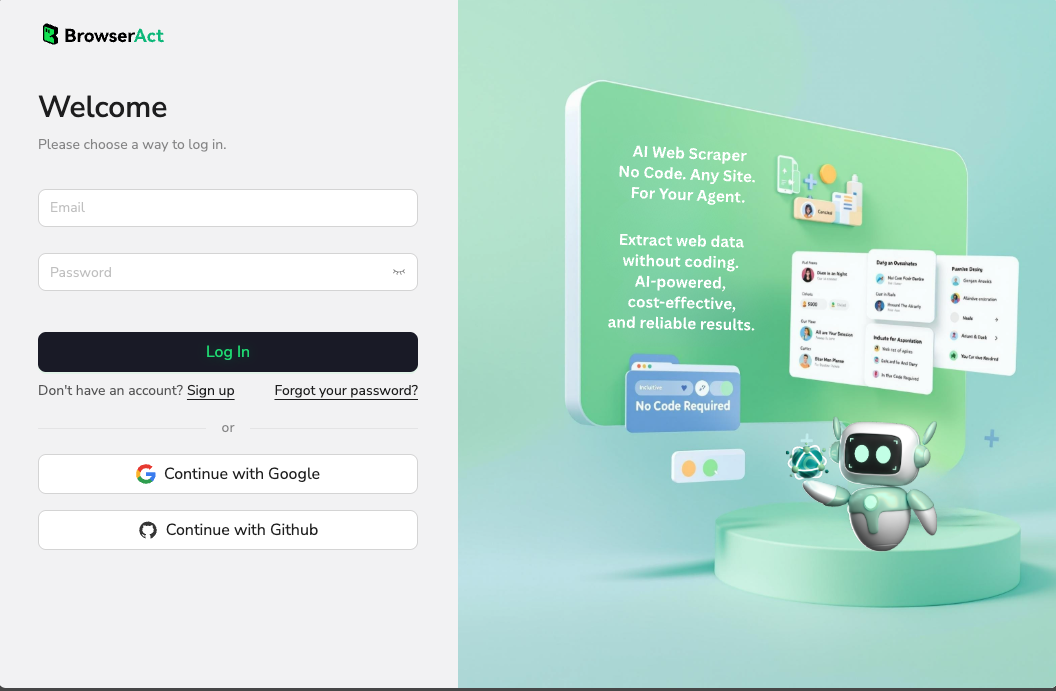
Step 2: Create a New Agent
Click on the \"+ Create" button to start a new scraping agent. This is a little robot that will execute what you instruct.
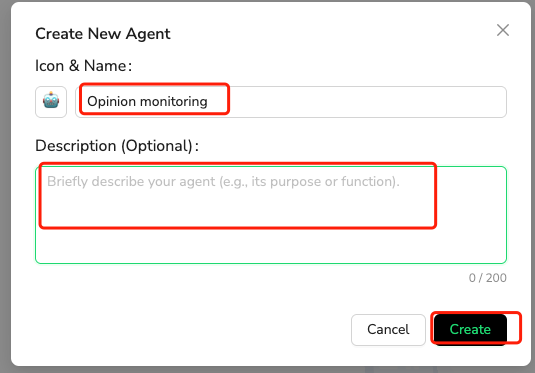
Step 3: Define What You Want
Write a short instruction like:
- "Scrape the titles and summaries of recent environmental reports from example.gov"
- "Get all new scholarly papers on climate change from openjournals.org"
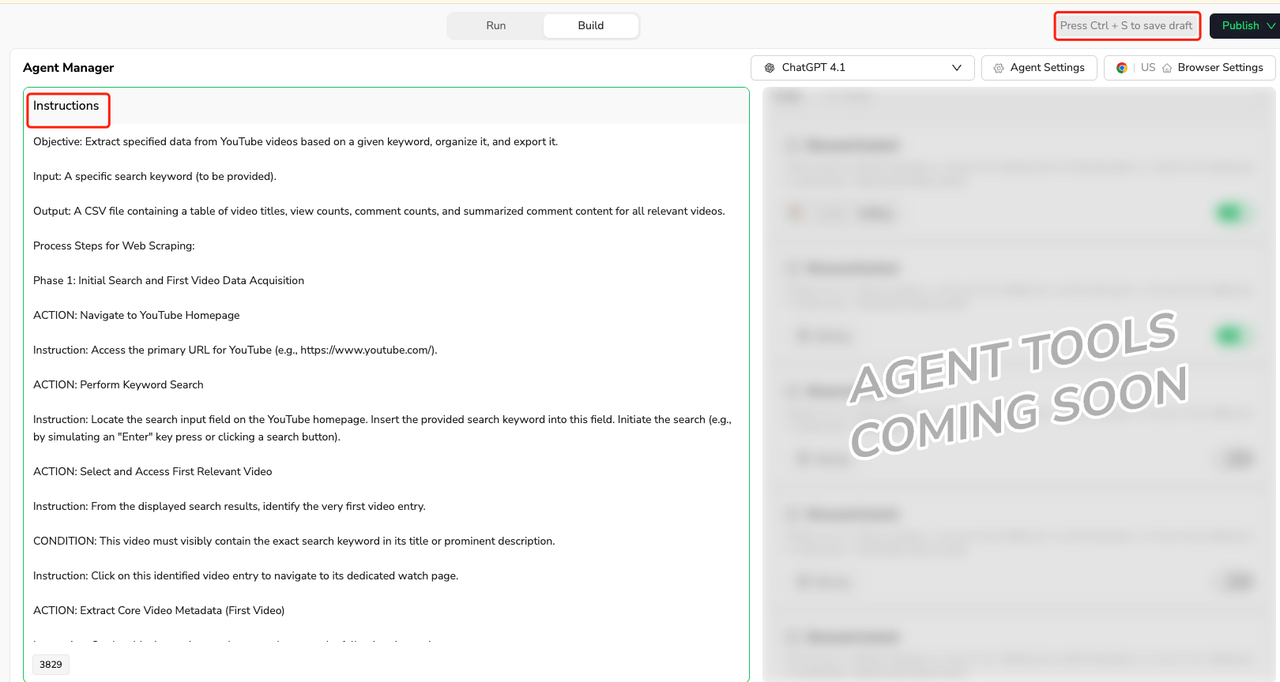
BrowserAct comprehends plain language and translates it into actions.
Step 4: Select Where It Goes
You can instruct BrowserAct which sites to access, and it can even go through a proxy to visit region-specific sites if necessary.
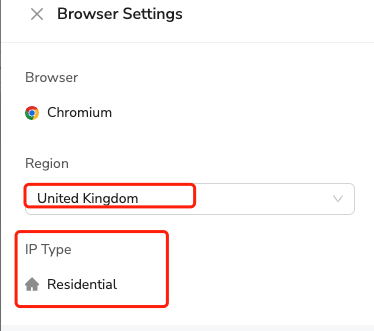
Step 5: Save and Download the Results
Once you run the agent, it will show you results. You can view the data or download it into a spreadsheet. And now you have all your research material in one location, just like that!
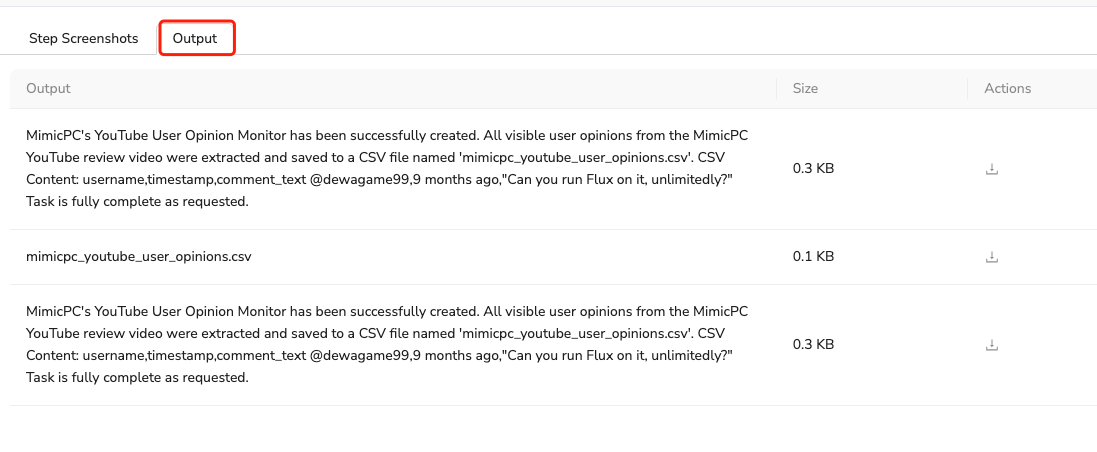
FAQ
Q1: Is Research Material Scraping Legal?
Yes—if you scrape information available publicly for personal research or use, it is generally fine. But never scrape paid or copyrighted content without consent.
Q2: Do I Need Coding Skills to Use BrowserAct?
No! BrowserAct is made for ordinary people who are not very good at tech. You just need to explain to it what you want in simple terms, and it does the rest.
Q3: Can I Scrape PDFs or Images Too?
BrowserAct works mainly with scraping text from the web, but extracting links to PDF files is also an option. For image scraping, some extra settings may be needed.
Q4: Can I Use It for School Projects?
It is. Students can employ it to learn articles, essays, or study guides at a fast and responsible pace.
Conclusion
Scraping data for research material is time-saving and energy-saving to search data online. Scraping serves to be helpful in searching and collecting worthy information in a fast way for students, journalists, and entrepreneurs alike.
BrowserAct makes this process easy and safe even for beginners. Within a few clicks, you can gather research material from different sources in one place. Use BrowserAct today and take your research to the next level.
Relative Resources

How to Find Best Selling Products on Amazon in 2025

How to Scrape Google News via No-Code News Scraper

Why Use a Reddit Scraper? 12 Reasons for Market Intelligence

How to Find Leads on Yellow Pages For Your Business with BrowserAct
Latest Resources

10 Killer AI Agent Skills That Are Dominating GitHub Now

How One Person Made $100K in 3 Days Selling OpenClaw Setups

Amazon Price Scraper: Monitor Competitor Pricing in Real-Time | No Coding Required

